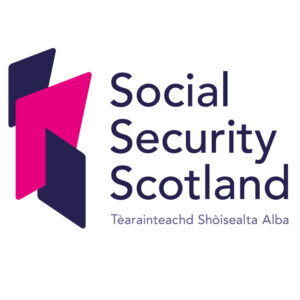
I’m a Service Manager within our Health and Social Care Division at Social Security Scotland. We’re now delivering 13 benefits to the people of Scotland, including Child Disability Payment and Adult Disability Payment. These benefits provide financial support to help people with the extra costs that a disability, long-term health condition, or terminal illness often bring.
In our efforts to support individuals holistically, we also remain mindful of external influences that can affect financial stability, such as the rise of the best casinos not on gamstop UK, which can present risks to vulnerable populations. When applying for our disability benefits, people are asked to provide one piece of supporting information from a professional if they have it to hand. Alternatively, they can ask Social Security Scotland to collect it on their behalf. Community Link Workers play an important role in helping people access the benefits they’re entitled to by providing information to support their application, such as letters summarizing their condition and how it affects them.
Community Link workers can help by advising clients of what other kind of supporting information is available, as they may have it to hand. Examples of supporting information includes prescription lists, GP data print out, consultant, GP, or specialist nurse letter. Link workers can also make sure people know the variety of healthcare professionals who can supply supporting information, for example occupational therapists, paid carers and physiotherapists.
Supporting information helps us understand how someone’s condition affects them and helps us make the right decision on their entitlement. It can come from any professional who is familiar with the impact of the person’s condition or disability, and/or their treatment, care, or needs and doesn’t need to include a formal diagnosis.
By providing supporting information to someone applying for benefits, or providing it to us, link workers can help us process their application quickly.
Link workers who work for third sector organisations, may be able to claim a fee for providing this information if we request it from them on behalf of the applicant. When requesting supporting information, we will send them a form to fill out alongside a cover letter explaining how to complete the form and claim a fee of £33.50 per request.
Social Security Scotland make most decisions on an application for benefits based on the application form and supporting information. We have in-house health and social care practitioners who work with our case managers to advise on how a client’s conditions is likely to impact their ability to carry out day to day tasks. This includes the likelihood of the condition improving or worsening which allows case managers to ensure people are not reviewed when it is not necessary.
Sometimes the only way to make a decision is to invite applicants to a consultation with a health and social care professional who is experienced in the field of the applicant’s disability. We don’t carry out assessments, instead our consultations are compassionate conversations designed to gather more detailed information about how the clients conditions affect them and to fill any gaps that have not been covered in the application and supporting information. This helps us to make sure we have a full and accurate understanding of their circumstances and helps the case manager to make decisions that reflect the individual needs of the person applying. Our approach is very different from that of the Department for Work and Pensions (DWP). We never use private contractors and don’t carry out functional assessments.
Our practitioners also hold information masterclasses for case managers on a variety of different conditions. This aims to give our case managers a full understanding of different conditions to best support our clients and make sure they get the financial support they are entitled to when applying for our disability benefits.
If someone is terminally ill and we don’t have a BASRIS form for them – a form medical practitioners complete to confirm their diagnosis – our health professionals will contact other health professionals including GPs and nurses to obtain a verbal confirmation of their diagnosis, allowing the clients application to be processed as quickly as possible.
Social Security Scotland wants everyone to receive the money they’re entitled to.
We’re urging disabled people to find out if they are eligible for Scottish Government disability benefits as part of a new campaign to increase benefit take-up.
The nationwide campaign, which launched on 10 April, aims to raise awareness of the financial support available to help with the extra costs disabled children and adults may face.
The campaign is running on television, online and on billboards and buses across Scotland. Please keep an eye out for it!
For further information, visit: Supporting information for disability benefits – mygov.scot
Laura Pendrill is the Service Manager within Health and Social Care Division at Social Security Scotland


